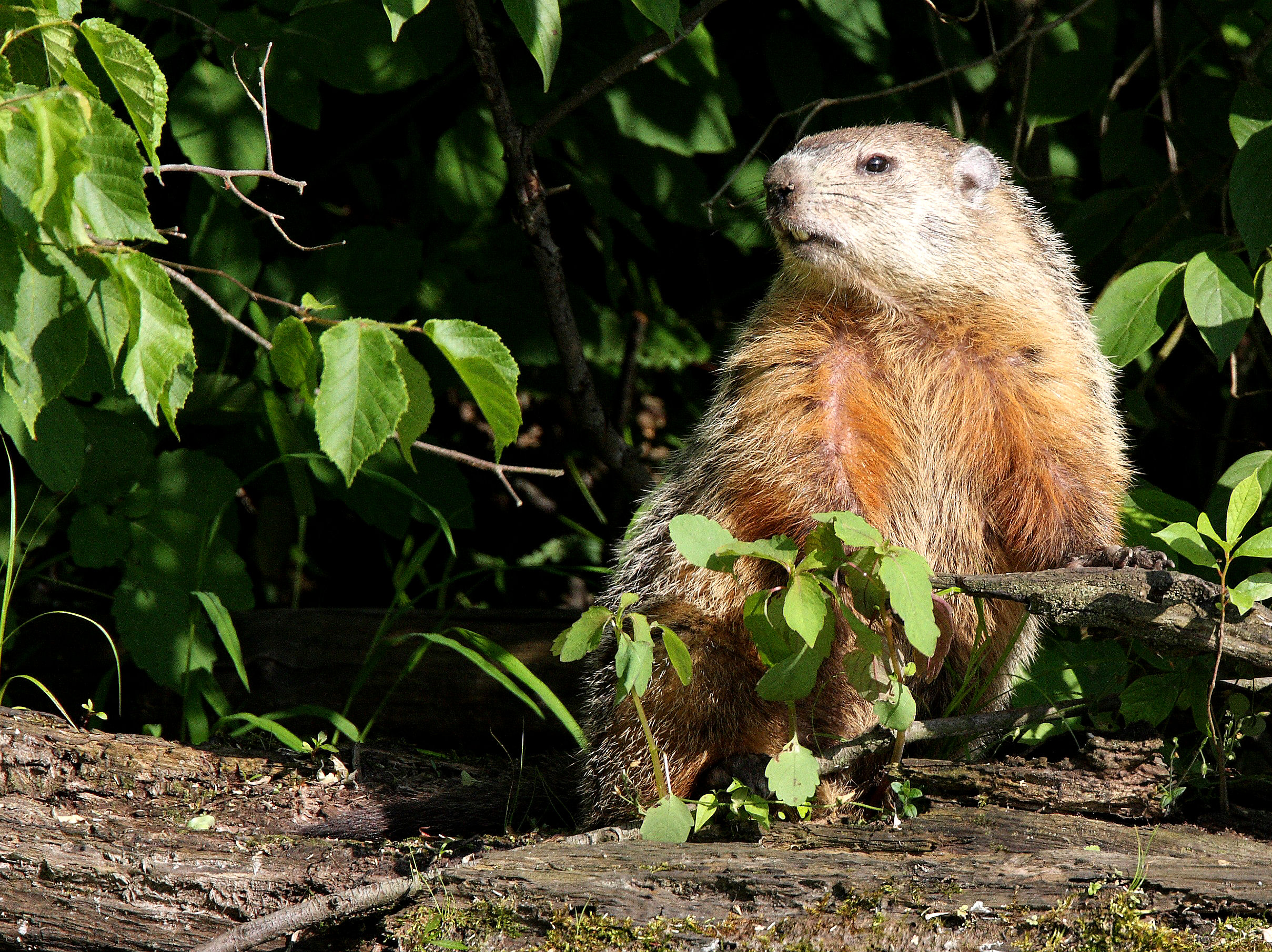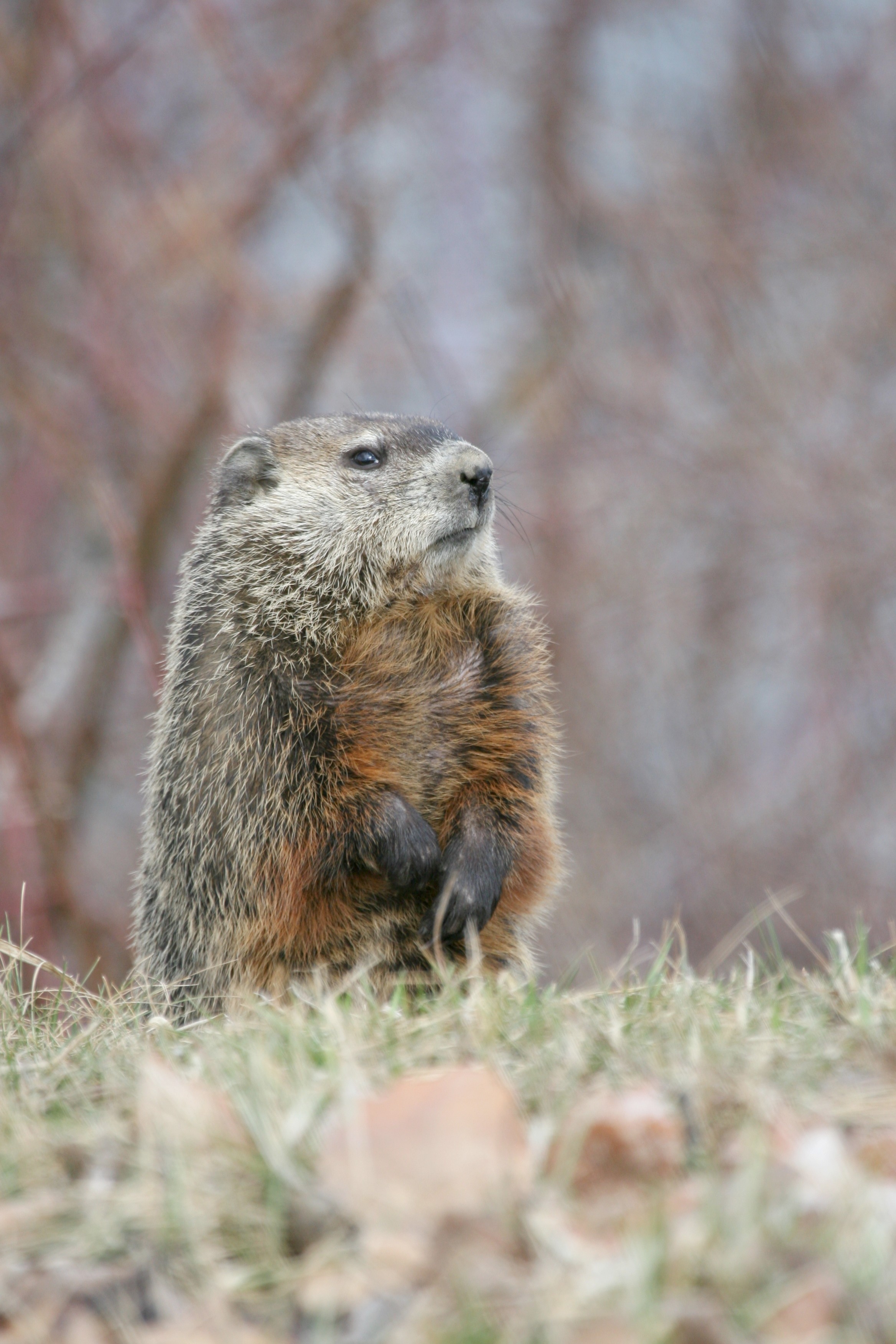Woodchuck
Woodchucks are large (up to 10 pounds) rodents native to much of North America. They inhabit open areas, backyards, and woodland edges and forage on grasses, flowers, vegetables, fruits, nuts, and crops.
Woodchucks are well adapted for digging, and live and hibernate in burrows, which typically have a main entrance and one or more escape entrances. They also are good climbers and can scale fences and climb low trees. Woodchucks have few natural predators. When threatened, they prefer to retreat to their burrows, but will climb and swim away as well. They are active during the day and sleep at night, and enjoy basking in the sun. True hibernators, they enter their dens in late October or November and reemerge in late February or March. Woodchucks damage garden vegetables and fruits, eat ornamental flowers, and debark trees. Their burrows can undermine foundations and fences and pose a hazard to equipment, animals, and people. They give birth in April and May with litters averaging four to five pups.
Legal, Regulated Hunting in Massachusetts
Legal, Regulated Hunting in Massachusetts
The use of legal, regulated, hunting by licensed hunters can be useful for reducing local wildlife populations and can help reduce nuisance problems in Massachusetts. You can allow hunters on to your property, provide a place for them to park to access nearby forest, and/or give them permission to hunt within 500 feet of your residence. Please also keep in mind that each town may have additional by-laws that restrict hunting and the discharge of firearms.
Solutions for woodchuck problems
Laws and regulations to be aware of
Regulations for Massachusetts
|
|||||
While we attempt to provide guidance about state and federal regulations pertaining to specific species and control techniques, we do not provide information about local jurisdictions (city, town, county, etc.) where regulations may be more restrictive, especially as it applies to discharge of firearms, transport of animals or use of trapping equipment. Contact your local city or county government to inquire further. No guarantee is made that information (or lack of information) associated with a species or control technique is completely accurate or current. You should become familiar with federal, state and local laws before beginning any wildlife control activities. |





